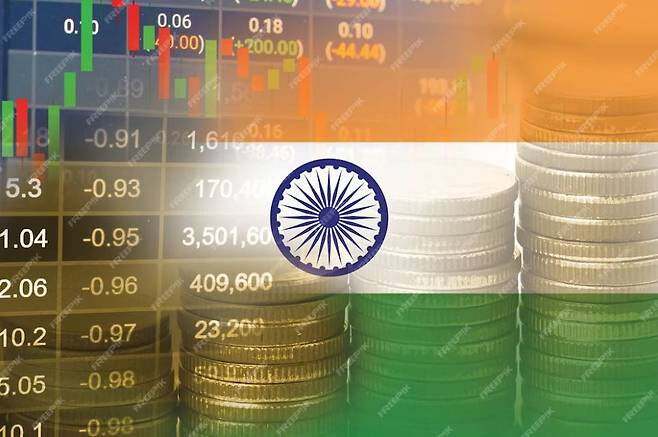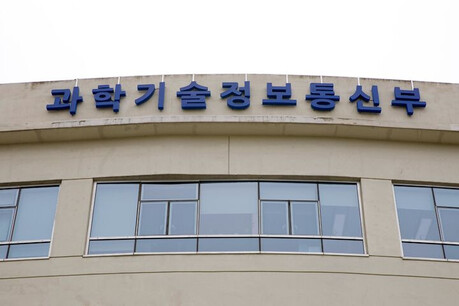
As the protracted trade dispute between the United States and China injects a significant degree of uncertainty into global financial markets, the Indian equity market is increasingly being viewed as a resilient sanctuary for investors. This burgeoning interest stems from India's robust domestic consumption-driven economy and the anticipated benefits accruing from the ongoing shifts in global supply chains.
An analysis of recent market performance, as reported by Investing.com on April 15th, reveals that Indian equities have demonstrably outperformed their global peers over the preceding month. The Nifty 50 index, a benchmark comprising the 50 largest companies listed on the National Stock Exchange of India (NSE), registered a commendable gain of 1.5% between March 11th and April 11th. Similarly, the Sensex index, which tracks the performance of 30 blue-chip companies listed on the Bombay Stock Exchange (BSE), witnessed an appreciation of 1.4% during the same period.
This positive trajectory stands in stark contrast to the widespread downturn observed across major international equity markets. During the identical timeframe, the leading indices of the United States, namely the Dow Jones Industrial Average (-2.9%), the Nasdaq Composite Index (-4.1%), and the S&P 500 (-3.7%), all succumbed to downward pressure. The contagion effect of this decline extended to the Korean Kospi (-4.1%) and Kosdaq (-3.6%). Furthermore, the Shanghai Composite Index (-4.2%), directly impacted by US tariffs, and the Hong Kong Hang Seng Index, which experienced a precipitous fall of 12.1%, bore the brunt of the negative sentiment. Other prominent Asian markets, including Japan's Nikkei 225 (-8.7%) and Taiwan's TAIEX (-11.5%), also sustained considerable losses.
The relative strength of the Indian stock market can be primarily attributed to its comparatively lower reliance on exports as a driver of economic growth. Data from the World Bank for the year 2023 indicates that India's merchandise exports constituted a mere 12% of its Gross Domestic Product (GDP). This figure is significantly below the global average of 23% and even lags behind China's export-to-GDP ratio of 19%. In the current environment of escalating retaliatory tariffs following the imposition of duties by the United States, India's domestically oriented economy is perceived as exhibiting greater stability and resilience against external trade shocks.
Adding to this favorable outlook is the Indian government's proactive engagement in trade negotiations with the United States administration. Following President Trump's recent imposition of a 26% tariff on Indian goods on April 2nd (local time), the Indian government promptly initiated discussions aimed at resolving trade terms. This approach contrasts sharply with the assertive stance adopted by other major trading partners such as China, the European Union (EU), and Canada, all of whom have openly declared their intention to implement retaliatory tariffs. Consequently, the Indian stock market demonstrated greater resilience in the immediate aftermath of President Trump's tariff announcement compared to its Asian counterparts. While the Hang Seng Index (-7.7%), the Nikkei 225 (-4.9%), and the TAIEX (-8.4%) experienced sharp declines, the Nifty 50 and the Sensex registered comparatively modest falls of 2.2% and 1.9%, respectively.
Furthermore, a recent analysis by Bloomberg News highlights the growing recognition of India as a viable alternative manufacturing hub to China. A compelling illustration of this trend is the substantial 60% year-on-year surge in iPhone production by Apple within India between April of the preceding year and March of the current year. This underscores the increasing inclination of multinational corporations to diversify their manufacturing bases and leverage India's favorable investment climate and burgeoning domestic market.
While acknowledging the potential for increased volatility in the Indian stock market stemming from the United States' evolving policy landscape, Kim Geun-ah, a research analyst at Hana Securities, offers a cautiously optimistic perspective. She posits that "Despite the inherent uncertainties associated with US policy shifts, the relatively small proportion of US-bound exports in India's overall economy, coupled with the prospect of global companies increasingly favoring India over countries like China and Vietnam due to lower tariff barriers, presents a compellingly positive narrative for Indian equities." This suggests that India stands to benefit from the ongoing realignment of global supply chains as companies seek to mitigate risks associated with the US-China trade friction.
In conclusion, the Indian stock market's recent outperformance amidst global market turbulence underscores its growing appeal as a safe haven for investors navigating the complexities of international trade relations. The confluence of a robust domestic economy, a relatively low dependence on exports, and the potential to emerge as a key beneficiary of global supply chain diversification positions India as an increasingly attractive investment destination in an era of heightened geopolitical and economic uncertainty. However, investors should remain cognizant of potential policy-induced volatility and conduct thorough due diligence.
[Copyright (c) Global Economic Times. All Rights Reserved.]






























